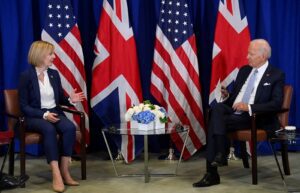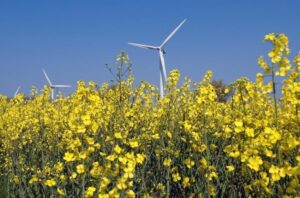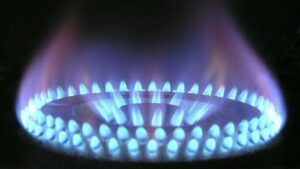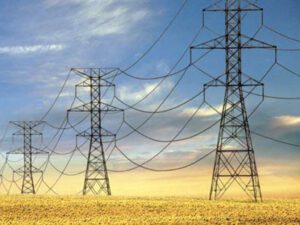
U.S. President Joe Biden and British Prime Minister Liz Truss discussed Ukraine, energy and economic security during the first official talks since she headed the British government, the White House reported on Wednesday.
“We want closer cooperation with the US, in particular on energy and economic security issues, as well as reaching out to other democracies around the world to ensure the triumph of democracies,” Truss said, quoted by the US administration.
In turn, Biden told Truss that he expects further close cooperation between the United States and Britain, and that they have a lot to do together.
“I look forward to working closely with you, our closest ally in the world,” the US president said.
Truss also added that she is “very eager to work with the US to make sure we support the Ukrainians.”

A study conducted by the CREA center shows that after the start of the war, the EU countries remain the largest consumers of Russian energy resources, according to the British edition of the Financial Times.
Thus, Germany imported hydrocarbons from the Russian Federation for more than 9 billion euros in two months, and Italy – almost 7 billion euros.
This is mainly natural gas supplied through pipelines. At the same time, China, which occupies the third position, buys mainly oil.
In addition, the Netherlands and France, as well as Turkey, remain major buyers of Russian energy resources.

Denmark has become the first donor to the Energy Community’s Fund to rebuild war-torn energy infrastructure in Ukraine, Energy Minister Herman Haluschenko has said.
“Sincerely thanks to the first donor, Denmark, for responding to Ukraine’s call for urgent support to the energy sector in these difficult times of war,” Haluschenko was quoted as saying by the press service of the Ministry of Energy in a release on the website on Monday.
The amount of funds sent by Denmark was not specified in the message.
At the same time, the minister called on other countries and international partners to become donors to the Fund, noting that Ukrainian power engineers every day, despite enemy shelling, again and again resume electricity and gas supply.
Director of the Energy Community Secretariat Artur Lorkowski, for his part, assured that the corresponding funds would be sent to Ukraine as soon as possible.
“The Secretariat, together with the Ministry of Energy of Ukraine, will work quickly so that all contributions paid are directed to meet the most important needs of the Ukrainian energy sector,” Lorkowski said, cited by the press service of the Ministry of Energy.
As reported, in early April 2022, the Energy Community created a Fund to rebuild war-torn energy infrastructure in Ukraine, the donors of which should be mainly EU member states, as well as international companies and corporations.

The EU has developed a plan for reverse gas supplies to Ukraine and Moldova in case these countries experience interruptions in supplies from Russia, Bloomberg reported on Monday, citing Energy Commissioner Kadri Simson.
“She told reporters in Vienna that the EU in the current situation cannot consider Russia a trustworthy partner, and therefore interruptions are not ruled out,” the agency writes.
In addition, Simson noted that Brussels is assessing what difficulties the economies and citizens of the EU countries will face if this integration association imposes an embargo on oil supplies from Russia.

The European Union will make every effort to support the energy sector of Ukraine, primarily to provide fuel to its agricultural sector in order to avoid a food crisis, European Commissioner for Energy Kadri Simson assured. “We will support Ukraine in terms of energy. There are many sectors that need support, for example, the agricultural sector. This is very important for Ukrainian farmers. Also, the importance of this issue lies in the fact that African and Middle Eastern countries depend on the state of the agricultural sector in Ukraine. Therefore, we will do everything to supply fuel here to support your economy so that it does not suffer more,” Simson said on the air of the nationwide UA telethon on Monday. She stressed that the EU countries really want to help Ukraine with fuel supplies, including providing funding, but for this, important logistics issues need to be resolved right now. At the same time, Simson pointed out that the EU, dependent on Russian gas, has already done a lot to strengthen its independence from Russian energy carriers, and continues to do so, and takes into account the interests of Ukraine in the search for alternative options. “The European Commission advises all EU members to intensify work to increase their own energy independence, we are looking for alternative directions for the supply of energy carriers for our countries. These are, for example, Azerbaijan, other countries. The world has not come together in Russia,” the European Commissioner noted. “When we discuss this issue with our suppliers, partners, we always take into account the interests of Ukraine,” she stressed.

Ukraine’s power system is operating normally, the availability of the necessary energy resources is fully ensured, the Ministry of Energy reported on its website on Thursday.
According to the ministry, security measures have been strengthened at all facilities, and the stability of the operation of enterprises and grids in the energy sector is being systematically monitored.
“Today, the IPS of Ukraine [Integrated Power System of Ukraine] and the Burshtyn TPP Island are synchronized into one power system, which operates autonomously from Russia and Belarus in a single control unit with the power system of Moldova,” the ministry recalled.
According to the report, the Ministry of Energy is currently setting itself the key task of providing Ukrainians, and primarily the Ukrainian military, with electrical and thermal energy.